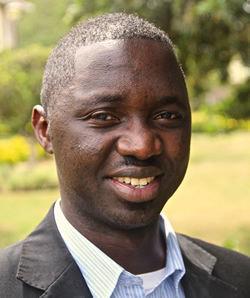
Finding Perspective on Funding and Capacity for Refugees and IDPs
Alex Rohlwing | November 23, 2015
Responding To: Head of U.N. Refugee Agency Calls for Greater Multilateral Cooperation on Migration
Susan Martin
IOM was established in 1951 as the Intergovernmental Committee for European Migration to make arrangements for the transport of migrants and displaced persons from Europe to overseas countries in which they would find greater economic and other opportunities. With more than 150 member states, IOM now has a broader mission to facilitate the safe, orderly and humane management of international migration globally.
At present, IOM often works under the UN umbrella but without full membership or authorities. Bringing IOM more fully into the UN system would provide a focal point for increasing international cooperation and provide an equal counterpart to UNHCR, whose mission is focused on persons fleeing conflict and persecution.
There are three major challenges that IOM would have to overcome to join the UN. The first is the lack of a clear set of norms governing its actions on behalf of migrants. While IOM’s mission is to promote humane and orderly migration, the organization has no legal mandate to protect the rights of migrants, as compared to UNHCR’s strong protection mandate for refugees. IOM’s constitution could be amended to establish a clear statutory protection role. It would give greater substance to the important and often dangerous protection work that the IOM already does, such as the rescue and evacuation of migrants in countries that fall into crises resulting from conflict and acute natural hazards.
A second barrier pertains to the way in which IOM receives its financial resources from states. While state members provide for administrative costs on the basis of agreed upon assessments, the operational budget comes mostly from voluntary, earmarked allocations for specific programs and activities. A large part of the earmarks support services to displaced persons in humanitarian emergencies, leaving functions related to the development, management and monitoring of migration policies underfunded. Such activities would be essential if IOM were to be given the type of regulatory responsibilities that the High Commissioner referenced.
The third and most serious barrier to the IOM becoming a focal point for a new multilateral regime on international migration is the reluctance of key states to see the IOM more closely tied to the United Nations. IOM is often described by government representatives as a lean, efficient organization that has the capacity to respond quickly to the needs of states. But this focus is also the basis of criticism by many civil society organizations that see the IOM as undertaking the bidding of states with too little regard for the rights of migrants. For the IOM to become the principal focus of international institutional responsibility on migration management, it would need to better balance its dual responsibilities—towards states and towards migrants. Whether states will permit this to happen will depend largely on the discussions taking place in regional and global forums to determine what forms of inter-state cooperation are mutually beneficial to source and destination countries, as well as to the migrants themselves. If these forums lead to the conclusion that a more robust international regime would be mutually beneficial, the reforms proposed here to the IOM’s mission and mandate would help achieve that goal.
Close working relationships between the IOM and UNHCR would clearly be needed in any new international migration system. The distinctions between voluntary and forced migration are by no means inviolate. What is now referred to as mixed migration, or more broadly, the intersection between voluntary and forced movements, requires mechanisms to address the complexities inherent in large-scale mobility. Only with a strong lead organization for migration will it be possible for migrants and states to reap the benefits of safe and orderly migration.
Susan Martin holds the Donald G. Herzberg Chair in International Migration and is director of the Institute for the Study of International Migration in the School of Foreign Service.

Alex Rohlwing | November 23, 2015

António Guterres | November 23, 2015

Emmanuel Foro | November 23, 2015

Lina Zdruli | November 23, 2015

Patrice Ndayisenga | November 23, 2015

Patrick Griffith and Jennifer Podkul | November 23, 2015

Tobias Vestner | November 23, 2015